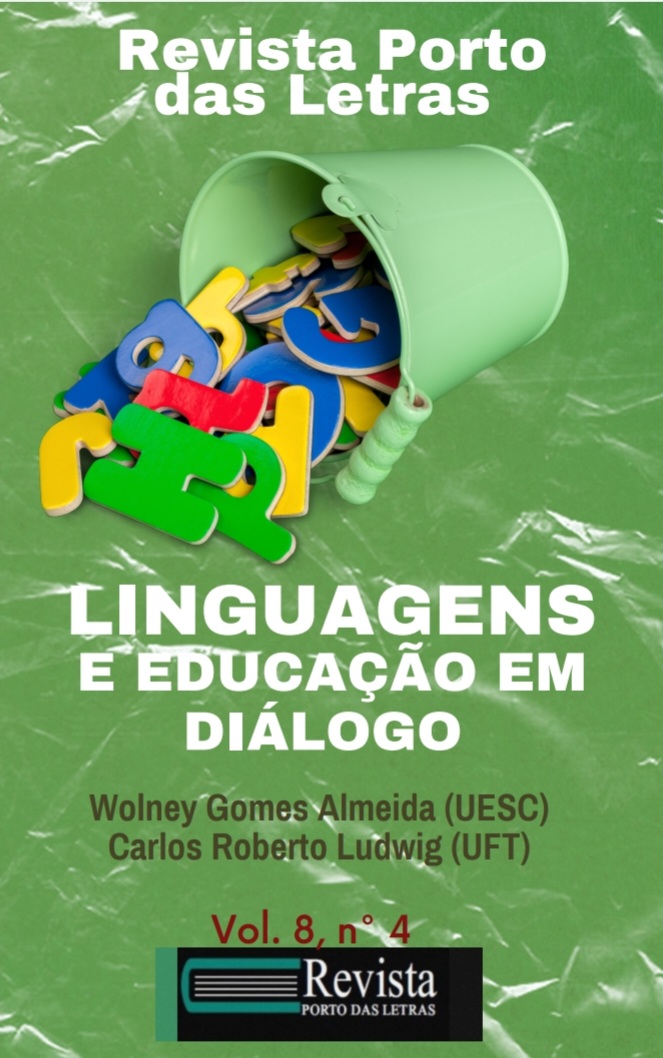From the Classic Epic to Modern Novel: The Narrative's Path and the Tragic End of Two Queens
Abstract
The present work discusses the theme of literary narrative and its relation to the world view of ancient and modern societies. From the reflections of Georg Lukács, in The Theory of Romance, we made a comparison of two characters, the queens Dido and Diana, belonging to works separated by time, space and historical-philosophical-social conjuncture: Virgil's epic Aeneid, written in 19 B.C., and the novel A Rainha do Ignoto (The Queen of the Unknown), by Emília Freitas, published in 1899. To fulfill this intent, we make some considerations about the narrative's path over time, according to the theoretical support of the philosopher Lukács (2007). Then, we approach the two works in focus, presenting: a brief context of the production of each, a succinct plot (life, kingdom and death of the queens) and the guiding principles of both narratives. Finally, we confront and, thus, highlight the differences (and possible similarities) that engender, in the narrative process, the motives and actions of the remarkable female personalities in question.
References
CHEVALIER, J.; GHEERBRANT, A. Dicionário de símbolos. Tradução de Vera da Costa e Silva et al. 31ª. Ed. Rio de Janeiro: José Olympio, 2018.
FREITAS, E. A rainha do ignoto: romance psicológico. 1ª. Ed. São Paulo: Ed. 106, 2019.
LOVECRAFT, H. P. O horror sobrenatural em literatura. Tradução de Celso M. Parcionik. São Paulo: Iluminuras, 2008.
LUKÁCS, G. A teoria do romance: um ensaio histórico-filosófico sobre as formas da grande épica. Tradução de José Marcos Mariani de Macedo. 3ª. Ed. São Paulo: Duas Cidades; Ed.34, 2007.
ROAS, D. A ameaça do fantástico: aproximações teóricas. Tradução de Julián Fuks. 1ª. Ed. São Paulo: Unesp, 2014.
SILVA, V. J. da. Resgatando Emília Freitas: as questões canônicas e os aspectos trágicos em A Rainha do Ignoto. 2007. 64 f. Dissertação (Mestrado em Letras - Ciências da Literatura) – Instituição de Ensino, Universidade Federal do Rio de Janeiro, Rio de Janeiro, 2007. Disponível em: www.posciencialit.letras.ufrj.br/images/Posciencialit/td/.../19-vivianejesus_arainha.pdf. Acesso em: 12 out. 2021.
SPALDING, T. O. Argumento analítico do poema. In: VIRGÍLIO, P. Eneida. Tradução de Tassilo Orpheu Spalding. 9ª. Ed. São Paulo: Ed. Cultrix, 1999. p. 5-7.
TEIXEIRA, C. A. A. Épica e tragédia no episódio da Dido virgiliana. Ágora: Estudos Clássicos em Debate. Departamento de Línguas e Culturas. Universidade de Aveiro, Aveiro-Portugal, n. 8, p. 41-56, 2006. Disponível em: http://www2.dlc.ua.pt/classicos/%C3%89pica%20e%20trag%C3%A9dia.pdf. Acesso em: 10 out. 2021.
VIRGÍLIO, P. Eneida. Tradução de Tassilo Orpheu Spalding. 9ª. Ed. São Paulo: Ed. Cultrix, 1999.
Downloads
Published
How to Cite
Issue
Section
License
Os autores concordam com os termos da Declaração de Direito Autoral, que se aplicará a esta submissão caso seja publicada nesta revista (comentários ao editor podem ser incluídos a seguir).

